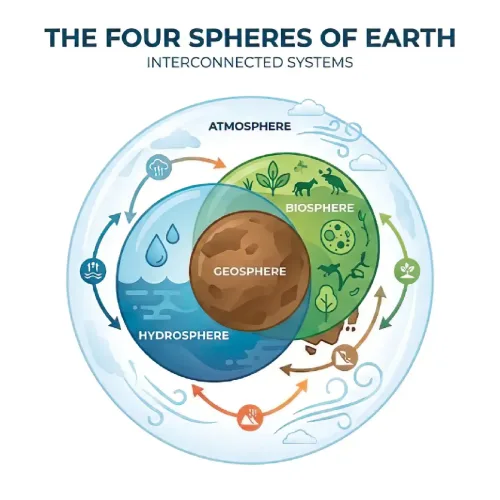Organic farming is a foundation of sustainable agriculture. It provides a comprehensive approach that improves environmental health. It also enhances economic profitability and promotes social and economic balance. This factual analysis explores the health impacts of organic farming for sustainable agriculture. It highlights its benefits and practices. The analysis also examines its role in creating a sustainable future.
Why Organic Farming is Key to Sustainable Agriculture
The health impacts of organic farming are extreme and multifaceted. By eliminating synthetic pesticides and fertilizers, organic farming avoids contributing to soil erosion and water pollution. It promotes natural ecological balance and encourages biodiversity, which is important for maintaining healthy ecosystems. Organic methods such as the use of manure and natural pest control enhance soil health, which improves crop yields over time. This approach helps in creating a sustainable agricultural system that not only meets current needs but also conserves resources for future generations. Additionally, organic farming methods support the health of surrounding wildlife, contributing to a more balanced and resilient environment.
Benefits of Organic Farming for Sustainable Agriculture
Organic farming offers numerous benefits that contribute to sustainable agriculture:
- Environmental Protection: Organic practices reduce pollution, conserve water, reduce soil erosion, increase soil fertility, and use less energy.
- Biodiversity Enhancement: Organic farms support higher levels of biodiversity, including beneficial insects, plants, and microorganisms.
- Soil Health Improvement: Organic farming improves soil structure and fertility through practices like crop rotation, composting, and reduced tillage.
- Climate Change Mitigation: Organic farms sequester more carbon in the soil, helping to mitigate climate change.
Effective Organic Farming Practices for Sustainability
Several organic farming practices are crucial for achieving sustainable agriculture.

1. Crop Rotation
Crop rotation is a fundamental practice in organic farming that involves changing the type of crops grown in a specific area each season. This approach helps prevent soil depletion by ensuring that the soil is not overused by one type of plant. It also disrupts the life cycle of pests and diseases, reducing the need for chemical interventions. By improving soil composition and nutrient availability, crop rotation increases overall agricultural productivity and sustainability.
2. Composting
This is a process that turns organic waste into nutrient rich compost, which can be used to improve soil fertility and structure. By recycling organic matter, composting reduces the need for chemical fertilizers and increases soil water retention. The practice also helps reduce greenhouse gas emissions by removing organic waste from landfills, where it would otherwise produce methane, a potent greenhouse gas.
3. Covered Cropping
Covered crops, such as legumes, grasses and clover, are planted during the off-season to protect and enrich the soil. These crops prevent soil erosion, increase soil structure and increase the amount of organic matter. They also help suppress weeds and improve nutrient availability for subsequent crops. By integrating cover crop into their farming practices, organic farmers can maintain healthy soil and reduce their reliance on synthetic fertilizers.
Practical Tips for Implementing Sustainable Organic Farming
- Start small: Start with manageable areas and gradually scale up your organic farming practices. This allows you to gain experience and adjust your methods as needed without being overwhelmed.
- Use local resources: Take advantage of locally available organic matter for composting and pest control. This not only supports local economies but also reduces the carbon footprint associated with transportation materials.
- Monitor soil health: Test your soil regularly to understand your nutrient levels and specific needs. This information helps you make informed decisions about soil amendment and crop management.
- Implement integrated pest management (IPM): use a combination of biological, cultural, and mechanical methods to control pests sustainably. IPM reduces dependence on chemical pesticides and promotes a balanced ecosystem.
Overcoming Challenges in Organic Farming for Sustainability
While organic farming offers many benefits, it also presents several challenges. Maintaining soil fertility, for instance, can be particularly difficult, especially in the absence of synthetic fertilizers. To address this issue effectively, regularly adding organic matter, such as compost and green manure, can be highly beneficial. Furthermore, pest control in organic farming demands constant vigilance, along with the use of natural predators or organic sprays. Implementing effective crop diversity and rotation strategies is crucial to prevent disease formation and soil depletion. Additionally, organic farming often involves higher labor costs, therefore, careful management is required to ensure both profitability and sustainability. Overall, while these challenges are significant, adopting strategic practices can help overcome them and enhance the success of organic farming.
Future Trends in Sustainable Organic Farming
The future of sustainable organic farming looks promising, especially as new technologies and methods continue to evolve. In addition, innovations in agronomy, permaculture, and regenerative agriculture are significantly expanding the prospects of organic farming. Moreover, these approaches integrate biological practices into broader sustainable systems that not only restore ecosystems but also enhance biodiversity and improve resilience to climate change. Furthermore, advances in technology, such as precision agriculture and sustainable irrigation methods, are also playing a crucial role in contributing to more efficient and effective organic farming practices. Consequently, these developments pave the way for a more sustainable and resilient agricultural future.
Conclusion
Organic farming for sustainable agriculture is undeniably a crucial approach to building a greener future. By thoroughly understanding the health impacts of organic farming and effectively implementing best practices, we can significantly promote environmental health, economic viability, and social equity. Therefore, adopting organic farming not only helps us contribute to a more sustainable and resilient farming system but also paves the way for a healthier planet. Moreover, for those who are eager to learn more about organic farming, particularly in urban areas, you can explore practical small space solutions in our blog on Organic Farming for Urban Areas.




